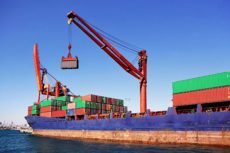Specialization and Free Trade Enhance Our Productivity—It’s Just That Simple
 In most cases people recognize that increasing productivity is a good thing. If we develop new technologies or make organizational changes that allow us to produce more output with the same inputs, we celebrate. If people acquire education or experience that allows them to produce more with their human capital, we regard this payoff as wholly beneficial. And so forth.
In most cases people recognize that increasing productivity is a good thing. If we develop new technologies or make organizational changes that allow us to produce more output with the same inputs, we celebrate. If people acquire education or experience that allows them to produce more with their human capital, we regard this payoff as wholly beneficial. And so forth.
Yet in regard to one extremely important means of increasing our productivity, many people actually object strenuously. This bizarre case pertains to open international trade. Such trade is the simple and obvious means by which, for thousands of years, people have produced A, B, and C and exported it to buyers in other lands, using the proceeds to purchase X, Y, and Z from foreigners. Producing A, B, and C and exporting them is an indirect way of acquiring what we value more, namely, X, Y, and Z. For example, Americans produce software and soy beans and use them to acquire computers and automobiles from the Japanese and South Koreans. The process of exchange need not be bilateral, of course. Americans export a great variety of goods and services to many foreign nations and, in exchange, import a great variety of goods and services from many foreign nations. Yet producing and exporting goods is clearly always a means whereby the goods produced abroad and imported into the USA are acquired at lesser total resource cost than would be the case if those goods were produced domestically.
Many people fail to see the simple logic of this kind of exchange, yet in economic essentials it is no different from beneficial exchange that does not involve crossing national borders. The economically irrelevant borders are used by interested parties and economic nincompoops to muddy the waters of understanding—and to feather the nests of special interests who cannot or do not wish to compete openly for the business of American buyers. The outrageous upshot is, among other things, that aspirants for the presidency currently compete to promise the public that if elected they will carry out economically destructive anti-free-trade policies of various sorts.
Up in the Valhalla of Great Economists, Adam Smith and David Ricardo are shedding tears, as the rest of us might also be inclined to do. Gains from trade, whether domestic or international, lie at the very heart of sound economics, yet relatively few people and even fewer politicos have a clue about this foundational truth.


















